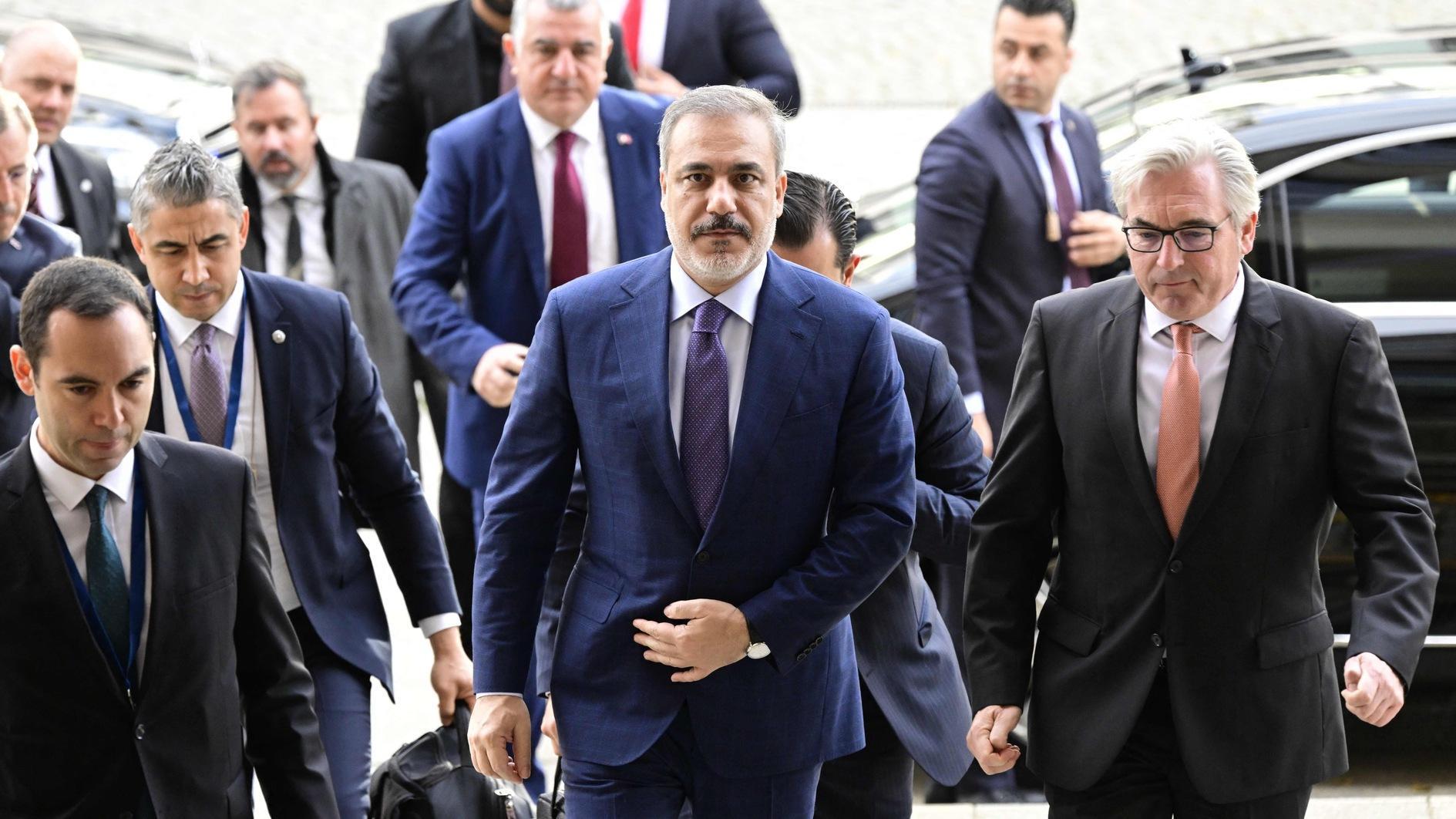FM in New York for UN meeting on Palestine
NEW YORK

Foreign Minister Hakan Fidan has arrived in New York to participate in the U.N. Security Council meeting on Palestine scheduled for Jan. 23.
The gathering aims to address "the situation in the Middle East, including the Palestinian question."
Fidan, for his part, is set to engage in bilateral meetings on the sidelines of the U.N. meeting, where discussions are expected to revolve around the war between Israel and Hamas.
The meeting comes against the backdrop of a surge in violence in the region, with the Palestinian militant group reporting a death toll exceeding 25,000 in the Gaza Strip since its cross-border attack on Oct. 7 last year, which Tel Aviv says killed nearly 1,200 people.
The Israeli offensive has resulted in an alarming 85 percent of Gaza's population being internally displaced, coupled with severe shortages of food, clean water and medicine. More than half of the enclave's infrastructure is now damaged or destroyed, according to the U.N.
Türkiye has been among the most vocal critics of Israel's unprecedented attacks in the wake of the Oct. 7 onslaught. President Recep Tayyip Erdoğan has more than once labeled Israel a "terrorist state" in response to the campaign in Gaza. He has also described Hamas, considered a terrorist organization by the United States and the EU, as a "liberation organization."
Fidan's visit to the U.S. follows his recent meeting with Hamas political bureau chief Ismail Haniyeh, as confirmed by diplomatic sources on Jan. 20. The undisclosed meeting focused on urgent matters related to the ongoing conflict in Gaza.
Key agenda items included the immediate establishment of a ceasefire in Gaza, escalation of humanitarian aid efforts, the release of hostages taken by Hamas and exploring avenues for a two-state solution to achieve lasting peace in the region.
Fidan himself has been involved in discussions within a multinational group formed last November in the Saudi capital Riyadh. Convened during a meeting of the Organization of Islamic Cooperation (OIC) and the Arab League, the group aims to "devise strategies to halt the ongoing conflict in the Middle East."
Representatives from eight Muslim countries – including Türkiye, Saudi Arabia, Egypt, Indonesia, Nigeria, Qatar, Jordan and Palestine – formed the group. The senior officials have undertaken visits to the five permanent members of the U.N. Security Council and some other nations, "seeking an immediate ceasefire in Gaza and ensuring the prompt delivery of humanitarian aid."
















